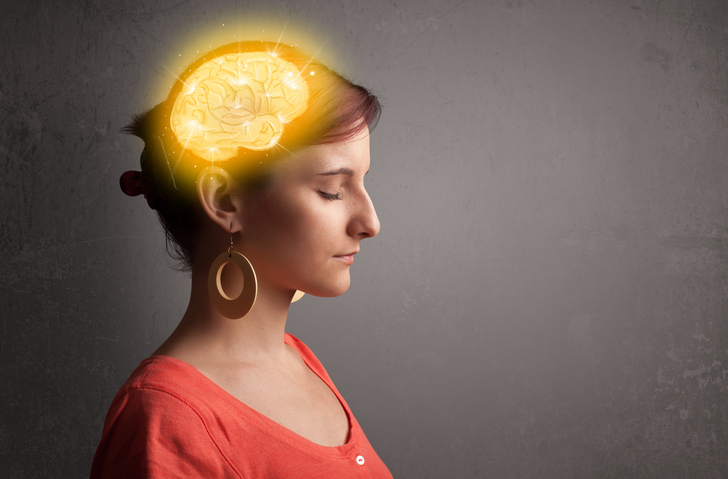Canadian women have faced numerous stressors in 2025. Many are feeling anxious, fearful, and emotionally drained as they try to navigate work, family, and personal well-being. With a soaring cost of living, a persistent shortage of affordable housing, and growing concerns about a potential recession and job losses at a time when inflation is unreasonably high, Canadian women are feeling stressed as never before.
But there is hope. In this sea of chaos, one practice for cultivating well-being has quietly stood the test of time: Transcendental Meditation® (TM®).
TM isn’t just another wellness fad or a passing trend. Brought to the west by Maharishi Mahesh Yogi over 60 years ago, TM is a simple, effective technique, rooted in the ancient Vedic tradition of India. TM is an authentic meditation that has stood the test of time and can be easily practised every day to help women effectively manage day-to-day stress and life’s big challenges.
| “We must take situations as they are. We must only change our mental attitudes towards them.”―Maharishi Mahesh Yogi |
Women who have learned TM report they can meditate anywhere: In the comfort of their own home, in their office, on a commuter train or plane, in a hotel room, or anywhere they can sit comfortably for 20 minutes. That’s it. No special space is needed, no breathing requirements, no obligatory postures, no effort to “clear your mind.” And yet, with this completely simply, natural, and effortless technique, women report that the results they experience are life-changing.

So how exactly does TM help women stay happy, settled, and productive, even when the world feels like it’s being turned upside-down?
First, TM gives the nervous system a much-needed break. During TM, the mind and body naturally and effortlessly settle into a deeply restful state. This isn’t just relaxation; studies have shown that TM provides a level of rest more profound than even deepest sleep and this profound rest allows the body to release accumulated stress and tension that builds up from daily life. 1
When stress runs the show, it can leave us irritable, anxious, and exhausted. TM reverses that. A meta-analysis published in American Journal of Health Promotion found that TM significantly reduces anxiety and stress across various populations, even more effectively than other meditation and relaxation techniques (Eppley et al., 1989). 2
| “ Never be in a hurry; do everything quietly and in a calm spirit. Do not lose your inner peace for anything whatsoever, even if your whole world seems upset. ”― Saint Francis de Sales |
TM doesn’t just help women cope with stress — it helps them cultivate a lasting inner happiness that’s not dependent on external circumstances. Regular TM practitioners often describe feeling more calm, centered, and resilient in the face of uncertainty. Think of it as anchoring yourself in a quiet place within, even while the storm rages outside.
| “TM has helped me to overcome the darkness that once surrounded me daily. It has given me the hope that I had been |
| looking for, and an end to the debilitating symptoms of PTSD. I finally feel peace inside.”―Deborah Lawless, Vancouver, BC |
There’s also evidence that TM boosts brain function. Research published in Cognitive Processing shows increased coherence between different parts of the brain during and after a session of TM. This coherence is linked to clearer thinking, better emotional regulation, and a greater sense of well-being. 3

One of the best things about TM is its practicality. You don’t have to retreat to the mountains or change your lifestyle to benefit. It fits into your day and becomes part of your routine. Just 20 minutes in the morning and 20 minutes in the evening is all it takes. It’s a rest well worth taking.
TM re-charges your energy reserves, dramatically increasing your efficiency during the day, while simultaneously allowing you to remain calm and emotionally available to those you love.
Millions of women worldwide, including students, nurses, doctors, educators, administrators, stay-at-home parents, those who are unhoused or incarcerated, celebrities, and CEOs, —people from all walks of life — practise TM. Why? Because it works. Women who practise TM report feeling more energized, more optimistic, and better equipped to handle whatever life throws
their way.
In a world that often feels overwhelming, TM offers a powerful reminder: Happiness isn’t about avoiding chaos—it’s about finding peace within it.
| “My view of TM is that it is better than the sunrise and the sunset.”—Michelle Daines, Montreal, QC |
1 Wallace, R. K. (1970). Physiological effects of Transcendental Meditation. Science, 167(3926), 1751–1754.
2 Eppley, K. R., Abrams, A. I., Shear, J. (1989). Differential effects of relaxation techniques on trait anxiety: A meta-analysis. Journal of Clinical Psychology, 45(6), 957–974.
3 Travis, F., Arenander, A. (2006). Cross-sectional and longitudinal study of effects of Transcendental Meditation practice on interhemispheric frontal asymmetry and frontal coherence. Cognitive Processing, 7(3), 145–151